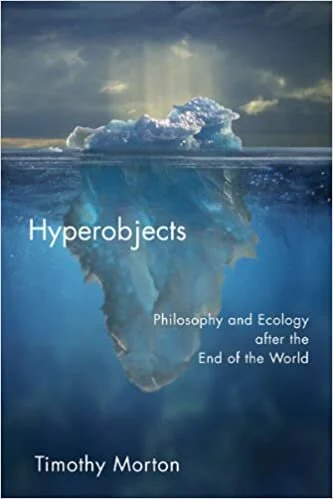Rating: 8
Hyperobjects: Philosophy and Ecology After the End of the World
Timothy Morton | 2013
This is a fantastic book that delves into the philosophy behind climate change and our collective ability (or failure) to grasp its implications and meaning. Morton argues that climate change is so immense, so widespread, and so complex that it occupies a higher dimension than the one we exist in, and thus we are unable to comprehend it in its entirety. All we can manage is to grasp tiny slivers, thus leading to our inadequate response. The fact that I struggled through reading many chapters in this book reflects my personal difficulty in reading philosophy, not Morton’s communication or writing. Despite my troubles I really enjoyed Hyperobjects and the book helped me build a framework through which to view climate change, ecological crises, environmental art, and climate politics.
“Stop the tape of evolution anywhere and you won’t see it. Stand under a rain cloud and it’s not global warming you’ll feel. Cut your coat into a thousand pieces--you won’t find capital in there. Now try pointing to the unconscious. Did you catch it? Hyperobjects compel us to think ecologically, and not the other way around.”
